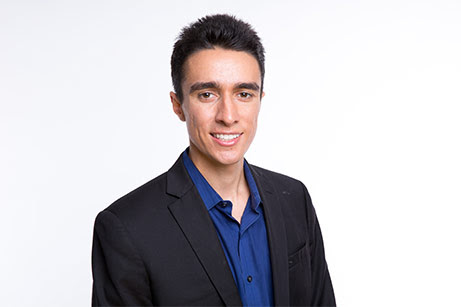What Mark Cuban Learned From His 6 Biggest Failures
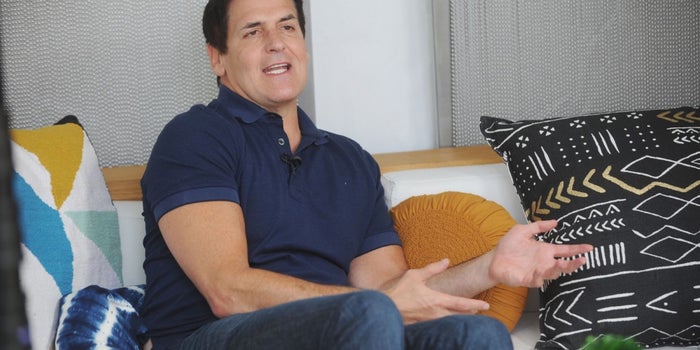
It’s easy to imagine Mark Cuban behind a desk, on television or courtside at a Mavericks’ game. It’s more difficult to imagine him fumbling a carpentry job, failing to pay his electrical bills or being on the receiving end of a firing. But Cuban, like everyone else, started somewhere. And he was once laying down carpets instead of million dollar investments.
Currently worth $3.4 billion, Cuban’s massive achievements came on the heels of many failures, all of which were valuable — even if painful — learning experiences.
His story goes to show that sometimes you have to lose 20 times or more before winning big, and what seems like luck is really just grit. Here are six of Cuban’s biggest failures and what we can learn from them:
1. When he couldn’t learn a fall-back trade
While growing up in Pittsburgh, Cuban’s parents encouraged him to learn a trade should he ever need a job to fall back on. Practical advice, except for one small problem. Cuban was pretty bad at most of the jobs he took on.
He worked as a carpenter laying down carpet, and quickly discovered he was terrible at it. As a short-order cook, he could only tell when food was ready by sampling it. And as a server, he struggled to open wine bottles without getting corks in diners’ Merlots.
Lesson learned: It’s okay not to be great at everything. “I’ve learned that it doesn’t matter how many times you failed,” Cuban says. “You only have to be right once.”
2. When his powdered milk gig held no water
Fresh out of business school at Indiana University, Cuban left his first job at a PC store because “they didn’t see a future in computers.” Set on starting his own business instead, Cuban’s very first venture was not destined to be the big break he’d hoped for.
The idea? Powdered milk. He saw an ad for the product and thought everyone needs milk. It’s cost effective and tastes about the same — why not go for it? As it turned out, his parents were among his only customers. “I honestly thought it would make a killer business,” Cuban recalls, “and it lasted minutes.”
The lesson? Don’t misjudge the market or the product. There’s a reason real milk reigns supreme, and judging by your tastes alone isn’t enough to launch something sustainable.
3. When being fired from a software job hardened his ambitions
After making a big move to Dallas, Cuban landed his first sales job at a company called Your Business Software. Knowing little about software, he taught himself on the job by reading all the manuals and went the extra mile to secure new customers.
But his initiative wasn’t enough to stop him from getting fired less than a year later. In fact, it was his initiative that would be his undoing. He closed a big deal with a client, and called out of his opening shift to do so against the CEO’s wishes. When he returned to the office with a $1,500 check, he was fired.
For Cuban, this incident made clear to him why he wanted to start his own business. It’s also why the CEO who fired him became his reverse-mentor. Says Cuban, “Even now I think back to things he did, and I do the opposite.”
4. When he couldn’t afford to pay his bills
Cuban was once asked what he thought was the one thing all successful entrepreneurs should experience. “Coming home and having the lights turned off because you couldn’t afford to pay the bills,” he answered. “It’s incredibly motivating and humbling.”
He’s also admitted to Entrepreneur to having his card cut up on one occasion. For Cuban, the lesson was simple. Use the shame and pain of such failures as a motivator to get back up and start winning.
5. When an NBA star reached huge heights without him
Cuban did eventually get his big break when started MicroSolutions and later sold it for $6 million, the first of his many lucrative business transactions. By 2000, he was even able to buy a majority stake of the Dallas Mavericks.
As owner, the Mavericks went from a 40 percent win rate to a 69 percent win rate. But even then, Cuban was not immune to failure. His biggest mistake was failing to re-sign Steve Nash, who left the Mavs to join the Suns and win MVP awards in back-to-back seasons. It was a terrible flaw in judgement, according to Cuban. “We certainly didn’t see him as a two-time MVP. And it was the biggest mistake I made not re-signing him,” he told Fort Worth Star-Telegram. “We thought his body would break down and it certainly didn’t. So, bad advice, bad across the board.”
The lesson? Don’t take bad advice, hold onto your assets, and don’t underestimate what talented people can accomplish with or without you.
6. When his first TV show flopped
Mark Cuban would go on to be the wealthiest shark on ABC’s Shark Tank as of 2012. But it was not his first reality TV rodeo, so to speak. The first, called The Benefactor, was a flop. The 2004 series involved 16 contestants vying for a $1 million prize, with Cuban judging their performances. Due to poor ratings, it was canceled before the first season aired.
It’s just another example of the old “if at first you don’t succeed” adage, and for Cuban, it worked. Shark Tank is now the most-watched program on Friday nights for viewers aged 18-49.
If at first you don’t succeed …
As Cuban wrote in his book, “It doesn’t matter how many times you almost get it right. No one is going to know or care about your failures, and neither should you.” When you finally get it right, “then everyone can tell you how lucky you are.”
Here’s How Google Trains World-Class Managers (Using A Bit of Data Science Helps)

In the 21st century, it’s not enough to rely on firsthand experience and consultants to train great managers: You also need the right data. That’s an interplay of factors at which Google excels.
In fact, Google is known for having some of the best managers in the world. Ever wonder how they train them? Let’s take a look at Project Oxygen and how its findings helped Google’s managers gain such a stellar reputation.
My featured article in Entrepreneur Magazine
How Jack Ma Overcame His 7 Biggest Failures
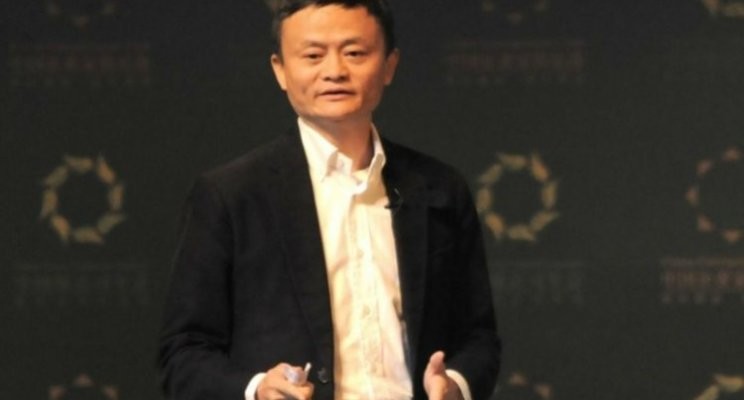
Ma, one of the world’s most successful entrepreneurs, seems proudest that he was happy with little and able to overcame much.
Jack Ma turns 52 on Sept. 10, 2016, and is currently worth $27.9 billion. Yet Ma once made $12 per month as an English teacher (though he was still happy).
His achievements are practically unbelievable considering his meager, humble beginnings. Along the way, he failed more times (and more spectacularly) than most of us could stomach in a lifetime.
Here are seven ways Ma experienced soul-crushing failure, but managed to keep his optimism, just like his hero, Forrest Gump. He…
1. Didn’t give up after failing many exams at school.
Ma was not a good student. In fact, he almost didn’t get into middle school.
“I failed a key primary school test two times, I failed the middle school test three times, I failed the college entrance exam two times…” Ouch. These are things most of us are lucky enough to have never said to our parents.
But surprisingly, Ma’s not alone. There’s a tradition of other great minds, including Albert Einstein, Winston Churchill, and Abraham Lincoln (along with Forrest Gump) struggled early in life with academics but going on to do great things.
2. Scored 1 out of 120 points on the math portion of his college entrance exam.
Failing is one thing. Getting a score of less than 1 percent on your college entrance exam is something else completely. And it wasn’t because he didn’t have time to prepare. To this day, Ma struggles with mathematics, despite the fact that Alibaba is a tech company.
To quote Ma: “I am not good at math, have never studied management, and still cannot read accounting reports.”
But as it turns out, he never needed to be good at math to become a billionaire. Perhaps even more impressive is that he never heard the word “computer” in his childhood.
3. Wasn’t deterred after being rejected from Harvard 10 times.
It’s not so much that being rejected from Harvard 10 times is surprising, it’s that he bothered applying that many times in the first place. What this shows us is that Ma is the paradigm of persistence. “The very important thing you should have is patience.”
He also went to the aptly named Hangzhou Normal University, where he went on to become an English major.
4. Stayed optimistic after being turned down for 30 jobs.
After graduating from college, he applied to 30 different jobs and was subsequently rejected by all of them.
He even applied to be a police officer. But they didn’t even give him the time of day, rejecting him with three simple words: “You’re no good.”
Fortunately, just like his favorite movie hero, Forrest Gump, Ma kept on running. “Today is cruel. Tomorrow is crueler. And the day after tomorrow is beautiful.”
5. Was the only interviewee (out of 24) rejected by KFC.
Out of 24 KFC applicants in his pool, 23 were hired. Ma was the only one to be rejected. He attributes this largely to his lack of good looks and short stature.
His wife, Zhang Ying (who married him before he became wealthy), doesn’t mind his appearance. “Ma Yun is not a handsome man, but I fell for him because he can do a lot of things handsome men cannot do.”
6. Couldn’t convince Silicon Valley to fund Alibaba.
Even after he started Alibaba, he suffered multiple failures. It wasn’t profitable the first three years. In the beginning, they expanded too fast and almost imploded when the dot-com bubble burst. At one point, Alibaba was just 18 months away from bankruptcy.
As Ma humbly notes: “I call Alibaba ‘1,001 mistakes.’”
7. Told his 18 Alibaba partners that none of them could be execs.
In one of the worst financial and motivational decisions a CEO can make, Ma told the 18 partners (contributing capital for a total of $60,000 USD), that none could rise higher than the rank of manager. His plan was to instead hire outside managers.
This, he notes, was his biggest mistake ever. “The lessons I learned from the dark days at Alibaba are that you’ve got to make your team have value, innovation, and vision.”
If at first you don’t succeed…
Jack Ma is a classic rags-to-riches story, but even more impressive than his fabulous wealth is his uncanny level of persistence. He is proof that no series of failures (despite how cripplingly depressing) can keep someone from achieving their dreams.
As Ma says: “If you don’t give up, you still have a chance. Giving up is the greatest failure.”
—-
My story first appeared on Entrepreneur receiving 70,000+ shares and several million views
How Tony Robbins Overcame His 5 Biggest Setbacks
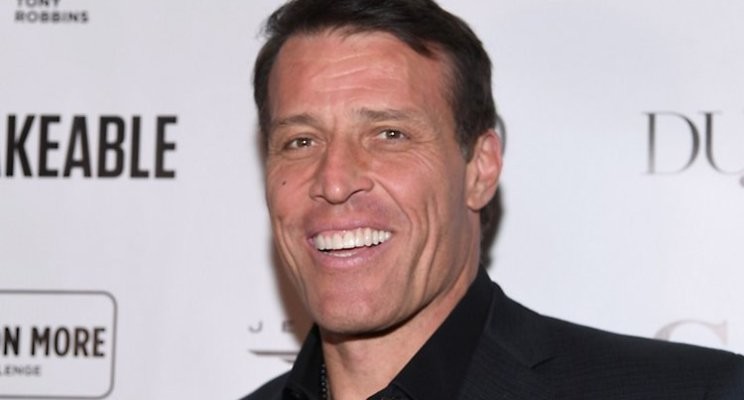
Tony Robbins has been called “the CEO whisperer.” He’s coached everyone from Bill Clinton and Oprah Winfrey to Mother Teresa and Nelson Mandela and is held in awe by blokes and billionaires. Perhaps no other life and career coach today can make that claim.
Robbins is so successful, in fact, that he has quietly built an empire of companies that generate around $5 billion per year. If they were one company, it would warrant inclusion in the Fortune 500. Robbins himself is worth an estimated $480 million.
But Robbins did not always have a rose-tinted life. In fact, the man who seems larger than life was once shrimpy and short. He grew up in poverty, in a broken home and had zero prospects.
Let’s take a look at what Robbins had to deal with over the years and how he’s managed to overcome every obstacle life has thrown his way to become the juggernaut he is today.
1. Fended for himself after his mom chased him out with a knife.
The oldest of three children, Robbins’ parents divorced when he was seven. His mother married several more times, but there was never a stable father figure or regular income. His family often skipped holidays like Thanksgiving or Christmas to save money. Things got worse. His mother became dependent on drugs and alcohol. At the age of 14, Robbins had become the man of the house. He took care of his siblings, cooking meals and acting as a handyman around the home. It still wasn’t enough. One day, his mother chased him out with a knife, and Robbins never returned. But Robbins will be the first to tell anyone, “Your past does not equal your future.”
2. Never lost hope when he was making $40 per week.
By the time Robbins was 17, he was out of high school, living on his own, his dreams of a degree in sports journalism dashed. He had to survive on a janitor’s salary of $40 per week. But Robbins wasn’t demoralized. He saved up $35 to attend one Jim Rohn’s motivational seminars, and then asked him for a job. Rohn saw the promise in Robbins and gave him a chance.
With Rohn as a mentor, Robbins worked 12-14 hours per day, but kept running into a wall. He wasn’t seeing results, and he wasn’t sure how to move forward. Rohn gave him some of the best advice he’s ever gotten — he needed to build a skill set. Only then would he be able to offer more value than anyone else and really show off his gifts.
That advice seriously paid off. By 2007, Robbins had gone from making $40 per week to $30 million per year.
3. Lived through a pituitary tumor and mercury poisoning.
Although it may be hard to believe, Robbins — who, at 6’7”, looks like he could have been a former professional athlete — was once nothing to look at. In fact, he was just 5’1” when he entered high school. At age 16, he was still 5’7”.
But his short stature only added to his incredible drive. It instilled in him a ferocious intensity to be the best at what he did. As a senior, he managed to become student body president. According to Robbins, this same drive is “what allows me to go in a room of 5,000 people and take it.”
Today, Robbins is more than 10 inches taller than his high school self, but it wasn’t because of a regular growth spurt. Robbins was diagnosed with a pituitary tumor in his brain that upped his levels of human growth hormone. Fortunately, the life-threatening tumor has since stabilized. Years later, his love of seafood resulted in extreme mercury poisoning.
“Life is a gift, and it offers us the privilege, opportunity, and responsibility to give something back by becoming more,” Robbins said.
4. Stayed in an unfulfilling marriage for 14 years.
Robbins’ biggest personal mistake may have been marrying ex-wife Becky Jenkins at the age of 24 — for all the wrong reasons. He once admitted to Oprah that “Even on the day I was married, I knew it wasn’t right. But I didn’t want to disappoint her. It sounds so stupid, but it’s the truth.”
Jenkins had three children when she married Robbins — a 17-year-old son, an 11-year-old daughter and a 5-year-old son. Robbins stayed with her until the youngest kid had gone off to college before finally making the painful decision to part ways. He eventually married his current wife, Sage, who he met through a business relationship.
To this day, Robbins receives criticism for divorcing Jenkins, but he has no regrets. “I’ve come to believe that all my past failure and frustration were actually laying the foundation for the understandings that have created the new level of living I now enjoy.”
5. Paid off an unexpected $150 million bill.
Robbins once mentioned in a Behind The Brand interview that one of his former business partners left him high and dry with a $150 million bill. “Has anyone ever betrayed your trust or stabbed you in the back?” asked host Bryan Elliott.
Robbins explained that when his brand was growing and he had to start hiring, he encountered several problems. “First I recruited people that I thought were my friends, but they were incompetent. Then I recruited people who weren’t my friends, but they had no integrity.”
Finally, Robbins drops the bomb — one of his business partners abandoned him with a bill for $150 million back when his business and brand were much smaller. But Robbins doesn’t focus on that at all. He doesn’t explain what happened the way most people would, trying to find validation. Instead, he goes on to say that he figured out how to pay it off and that it ultimately helped him grow tremendously. “The path to success is to take massive, determined action.”
We can change our lives.
Robbins’ incredible rags-to-riches story, outrageous confidence and unshakeable optimism are driven by his almost complete mastery over his own thoughts. He thinks that the biggest thing holding most people back is their own self-limiting beliefs. “People are not lazy,” he said. “They simply have impotent goals, goals that do not inspire them.
When only 30 percent of employees are engaged at work and around 25 percent are actively disengaged, it’s easy to see the wisdom in his words. Many “successful” people have shackled themselves with golden handcuffs and have no idea how to get them off.
“Tony’s genius is his ability to deconstruct what drives certain behaviors,” says Paul Tudor Jones, a famous hedge fund manager and one of Robbins’ biggest fans.
Robbins’ most actionable advice? “It is in your moments of decision that your destiny is shaped.”
—
My story first appeared on Entrepreneur
5 Habits That Make Elon Musk an Innovator
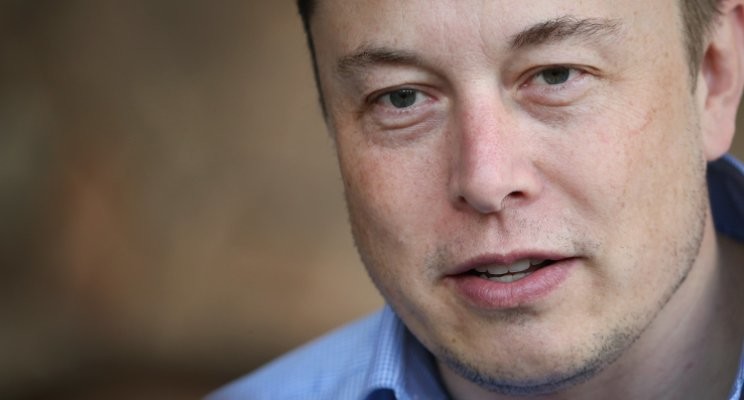
There are only 24 hours in every day, and you can’t squeeze out an extra second. Yet some people manage to be so productive and innovative they become billionaires at an age when most of us are still struggling to make ends meet. Even among billionaires, some stand out more than others, capturing the hearts of admirers everywhere.
Elon Musk is arguably one of the most well-liked and respected billionaires today. With Tesla’s recent Model 3 announcement, he continues to stay relevant. Let’s take a look at how Musk has stayed one step ahead of a very elite pack. What habits set him apart from his peers?
1. He reads the way most people watch TV.
Like Buffett, who claims to read around 500 pages a day, Musk is the definition of a bookworm. When he was in grade school, he was reading ten hours a day, devouring everything in his library and the entire Encyclopedia Britannica, and completed a six-month BASIC course in just three days.
Here’s a list of some of his favorite books, just in case you’re interested.
2. He doggedly pursues his own interests.
If his healthy reading habits weren’t already a giveaway, Musk is a true believer in self-guided learning. At the age of 12, he used his BASIC skills to program Blastar, a self-made video game which he sold to PC and Office Technology for $500. Musk also doubled majored in physics and economics, then interned for both ultracapacitor research and video game companies.
Today, he’s worth $14.5 billion and runs businesses that seem to have nothing to do with one another. Except they all do, of course — Musk is genuinely interested in them. It’s no surprise that he’s the main inspiration behind Robert Downey Jr.’s Iron Man character.
3. He is tirelessly, unflaggingly optimistic.
While the first two traits are true for most successful businesspeople, Musk also has an ace up his sleeve — he has a strong glass-half-full mentality. His Forbes profile sums this up best by describing two of his companies as “moonshot tech companies.” Except Musk doesn’t think of them as moonshots at all.
The secret to his innovation lies in his enthusiasm. This is a guy who grew up with an emotionally abusive father and was once bullied and beat up so bad that he needed to go to the hospital. “If you wake up in the morning and think the future is going to be better, it is a bright day. Otherwise, it’s not.”
Musk genuinely believes that what he’s doing is good for the world, and that it’s making a positive difference. In fact, he believes so much in SpaceX that there are two giant posters in his office: before and after scenarios of what Mars will look like once he’s colonized the planet. “I want to die on Mars. Just not on impact.”
4. Yet he still believes failure is an option.
Countless people — some of them very qualified experts — told Musk his ideas were ridiculous and bound to fail. Yet Musk managed to ignore them all and do things the way he wanted.
Granted, some of his ideas never quite took off. But many more succeeded and are dazzling investors and consumers alike. “Failure is an option here. If you’re not failing, you’re not innovating enough.” Or, put another way, “There’s a tremendous bias against taking risks. Everyone is trying to optimize their ass-covering.”
5. And he really, really knows how to party.
Businessweek writer Ashlee Vance wrote a book about Musk titled Elon Musk: Tesla, SpaceX, and The Quest for a Fantastic Future that revealed some interesting insights into Elon’s private life — especially how much of a party animal he is.
Here are some of the more fascinating factoids:
- He paid for college in Ontario by turning his frat house into a well-run nightclub.
- On his 30th birthday celebration, he rented out an English castle for a party of 20 and played hide-and-seek games until 6 am.
- He once threw a costume party in Venice (of course) and came dressed as a knight. Then he dueled a mini Darth Vader with a parasol.
Parties aside, Musk also just knows how to have a really good time in general:
- After selling his first video game, he started a video game arcade in South Africa as a teenager.
- He totaled an uninsured McLaren F1 doing tricks on Sand Hill Road en route to an investor meeting, and ended up hitching a ride instead. The sports car was worth $1 million.
- He’s going to build a roller coaster around the SpaceX HQ, just because.
You don’t have to have a PhD to be a pioneer.
Before he sold PayPal and became the multi-billionaire innovator we all admire, Musk decided to give graduate school a shot. He enrolled in a Stanford PhD program — and dropped out after just two days. That’s all it took for him to realize that there probably wasn’t too much he could learn from the class that he couldn’t learn on his own.
Most of us, if we were fortunate and talented enough to be accepted by a PhD program at Stanford, probably would have attended. Musk didn’t because he already had all the skills he needed to be successful. He was laser-focused on his interests, intensely curious, unflaggingly optimistic, and unafraid to fail.
What about you?
—
My article first appeared on Entrepreneur, then Fortune Magazine and Business Insider receiving over 17,000+ shares on social media.
5 Things Warren Buffett Does After Work
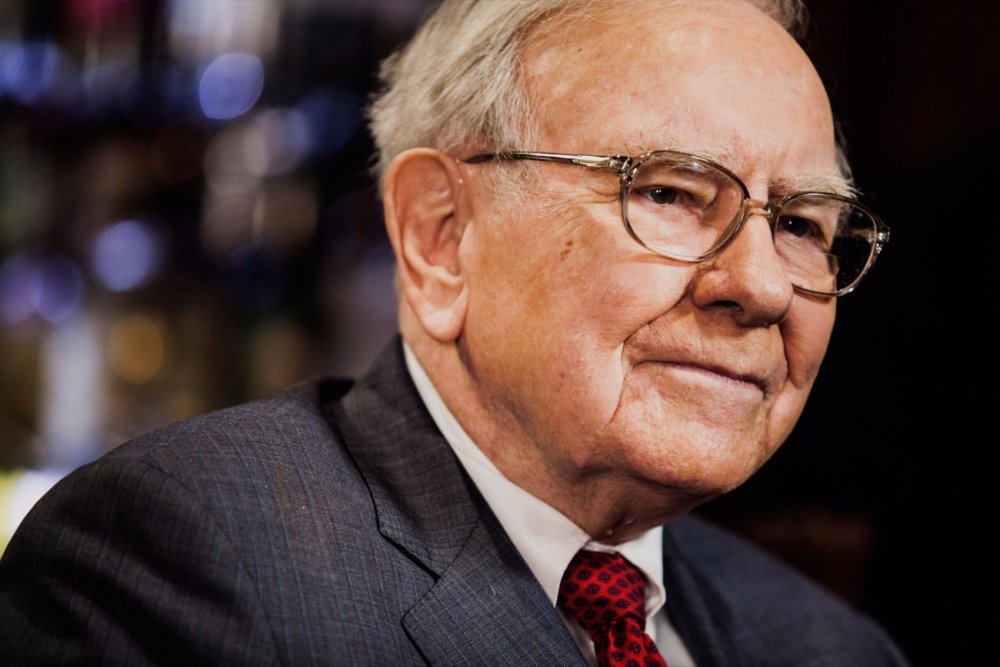
When the Oracle of Omaha talks, people make pilgrimages. In fact, thousands of Berkshire Hathaway shareholders flock to the tiny town of Omaha, Nebraska each year to hear him talk about investing.
Of course, if any business leader can command that level of devotion, it’s Mr. Buffett. He has practically doubled or tripled his net worth in every decade of his life, and is now worth $67 billion. A single share of his company’s stock? Try $191,396. That’s enough to buy a house in any one of the 50 states.
Teach us your ways, Warren!
There are countless books on how Buffett accumulated his wealth (Amazon has almost 20 pages of results under his name). The number of articles about him on sites like The Motley Fool, The Wall Street Journal, and Business Insider is probably somewhere in the thousands.
But there aren’t that many articles on what he does in his spare time after work.
This isn’t surprising. In our current culture of competitive workaholics who regularly work late hours, Buffett’s office schedule is more valuable to readers than his home hobbies. But his famous Zen attitude towards managing, investing and making billions can be largely attributed to his enviable work-life balance.
Here are 5 things Warren Buffett does each day that we could all learn from:
1. Read 500 pages.
Once, when asked how to get smarter, the Oracle held up a stack of papers and said, “read 500 pages like this every day. That’s how knowledge builds up, like compound interest.”
Buffett estimates that he spends 80 percent of his waking day reading at work (financial statements, journals, reports) and at home (newspapers and books). Some of us don’t read that many pages each year.
“I do more reading and thinking, and make less impulse decisions than most people in business.” Makes sense; the better read you are, the more informed you are, the less impulsive you are.
2. Exercise a little.
Buffett once said that his secret to staying young is to “eat like a six-year-old.” This includes drinking up to five Cokes a day. “I’m one-quarter Coca-Cola,” he admitted. (Considering he owns $16 billion in Coca-Cola stock, that’s not too far from the truth.) Keep in mind that the 85-year-old also likes to eat hamburgers, steaks, hash browns and root beer floats.
In 2007 (at the age of 77), he revealed that his doctor had given him a simple choice: “Either you eat better or you exercise.” Buffett chose exercise, “the lesser of two evils.” The simple life change must have worked. After beating prostate cancer in 2015, he still looks happy and healthy.
3. Be grateful, not wasteful.
Following in the footsteps of his hero, Chuck Feeney (who secretly gave away his entire fortune), Buffett is one of the world’s biggest philanthropists. His Giving Pledge also boasts dozens of billionaire signees, including Bill Gates, who have committed half their net worth to charitable causes. Buffett has pledged to give away 99 percent of his fortune during his lifetime.
“If you’re in the luckiest 1 percent of humanity, you owe it to the rest of humanity to think about the other 99 percent.”
He is also famously frugal, so it all works out. Not only does Mr. Buffett live in the same house he bought in 1958 for $31,500 (ironically, it costs significantly more to live next to him). He also likes to treat investors who visit him in Omaha to McDonald’s for lunch.
4. Play a game that requires patience.
Like Chuck Feeney, Buffett has admitted that he manages his ever-growing fortune like he’s playing a game. This isn’t surprising. He enjoys games, and regularly plays financial “mind games” to help him better see patterns in his investments.
He also likes to stay sharp by playing Bridge (which, like Monopoly, takes a notoriously long time to finish). In fact, Buffett likes Bridge so much that he can sometimes be found in an Omaha strip mall, paying $7 to play against retirees.
“It’s got to be the best intellectual exercise out there,” he claims. “You’re seeing new situations every ten minutes…Bridge is about weighing gain/loss ratios. You’re doing calculations all the time.”
5. Have a hobby that’s just for fun.
For Wall Street analysts who often work 100+ hours a week, something as mundane as a “hobby” is inevitably put on the back burner. But Warren likes his hobbies. If you can believe it, he’s a pretty good ukulele player and even writes his own songs. There are YouTube videos of him singing about Coca Cola and playing duets with Bon Jovi.
In fact, there’s probably no better way to end this post than with a video of Mr. Buffett playing ukulele duet for charity with Jon Bon Jovi.
If one of the world’s richest men can afford to be this silly once in a while, we can, too.
—
My story first appeared on Entrepreneur, then Fortune and Business Insider receiving over 40,000+ shares on social media.
Seven Simple Tips for Insightful A/B Testing

Never stop testing, and your advertising will never stop improving.—David Ogilvy, Ogilvy & Mather
Are you split testing? Check out my latest guest post on 7 simple tips for insightful A/B testing, published in Moz.
10 Marketing Strategy Rookie Mistakes

Take a look at this in-depth guest post I wrote for Oracle Marketing Cloud, in which I explain how to avoid the most common mistakes for marketing strategy implementation. If you’re on your first implementation, or are still considering marketing strategy for your business, this post will save you a lot of grief.
Bow Down, Marketers: Interactive Content is The New King

How long has content been king? It’s hard to keep track.
In fact, I’d wager that content in its current form, static and unmoving, has been reigning over marketing long enough that we marketers are getting a bit bored.
5 best-practice email marketing case studies

Check out this guest post I wrote for Convince & Convert on email marketing case studies. In it, I explain how leading companies explode their revenue with some very simple (and affordable) improvements to their email marketing strategy.

If you want to break through to real profits online, you need some serious firepower.
For a limited time I’m sharing some select tips and tricks Amazon, Microsoft, NBC &
Hewlett Packard paid thousands of dollars per hour for, FREE.


- The step by step guide to monster traffic generation
- The how-to guide for increasing conversions on your website
- 7 Cashflow killers your analytics tools are hiding from you



